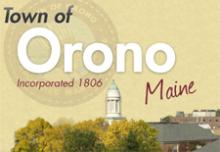
Fast, affordable Internet access for all.

Time Warner Cable recently fought to prevent a collaborative project in Maine from receiving $125,000 in state broadband funding, reported the Bangor Daily News.
We reported in December that Old Town, Orono, the University of Maine, and GWI had been awarded ConnectME funds. The collaborators earmarked the funding for a stretch of about 4 miles of fiber which could serve about 320 subscribers and would ultimately be integrated into a much larger network for businesses and residents. The network would connect to Maine's Three Ring Binder network.
Old Town and Orono want to establish gigabit connectivity to a nearby industrial area to transform it into a technology park for economic development purposes. Several businesses, including a health clinic that, have expressed interest in setting up shop in the planned development.
Old Town and Orono formed OTO Fiber, an independent entity to have authority to design, install, maintain, and manage an open access network. In typical fashion, TWC took action prevent local citizens and businesses from ever capitalizing on a gigabit, rather than work with the municipalities to deliver TWC services over the publicly owned infrastructure.
The ConnectME Authority voted in TWC's favor, based on the arguments as presented in an earlier Daily News article:
The company argues that the agency only has the ability to give grants in areas it deems “underserved” or “unserved,” and that projects getting grants should overlap with less than 20 percent of the customers of an existing provider.
The towns, which formed the company OTO Fiber to develop the project, argue that the service does not duplicate existing services and that other Internet service providers would be able to contract with the company to use the open network that would be built by Networkmaine, a unit of the University of Maine System.
Belle Ryder, assistant town manager for Orono, told the board Thursday that the project still would move ahead, but with municipal funds that, with the grant, would have gone toward other municipal uses.Ryder told the Bangor Daily News on Thursday that the town has money from a tax-increment financing district that could be used for the purpose.
In November, the Federal Communication Commission (FCC) unveiled its new Broadband Availability Map.
Legislative changes and funding in Maine in the last year have made it easier for local communities to consider municipal broadband options. While incumbent providers have been pushing back, local communities are pulling themselves forward.
Setting the Stage
